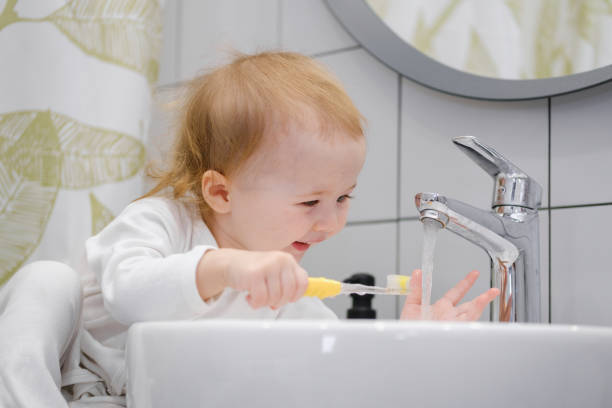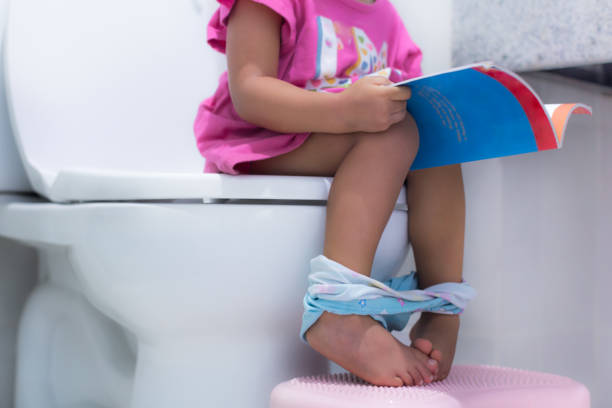Introduction:
Encouraging independence in daily activities is not only essential for their growth but also helps them develop important life skills. One of the key aspects of this journey is encouraging independence in daily activities, particularly for babies and toddlers. In this blog, we will explore the various ways in which parents can empower their little ones to become more self-sufficient and capable individuals. During the early years, babies and toddlers undergo rapid physical, cognitive, and emotional changes. It is during this time that they develop essential skills and lay the foundation for future learning and independence. Encouraging independence in daily activities is crucial as it not only fosters their overall development but also boosts their self-esteem, confidence, and problem-solving abilities.
By allowing babies and toddlers to engage in age-appropriate tasks on their own, parents can provide them with opportunities to explore their capabilities, develop fine and gross motor skills, and enhance their cognitive functions. These activities can include feeding themselves, attempting to dress independently, or even exploring their surroundings under careful supervision. As parents, our role is to facilitate and guide these experiences, ensuring a safe and supportive environment that promotes their independence.

However, we understand that raising independent toddlers comes with its fair share of challenges. Many mothers find themselves facing common obstacles such as toddlers' resistance to perform tasks independently, tantrums, and difficulties managing time while allowing their little ones to explore and learn. It is important to address these issues and provide practical solutions that can help mothers overcome these challenges and foster independence effectively.
Throughout this blog, we will delve into the definition and importance of independence in babies, understand the problems faced by mothers of toddlers, and explore practical strategies that can be implemented to encourage independence in daily activities. By creating a supportive environment, promoting self-help skills, and nurturing decision-making and problem-solving abilities, parents can empower their toddlers to thrive and develop into capable individuals. Remember, each step towards independence is a milestone in their growth journey. So, let's embark on this exciting adventure of empowering our little ones and watch them flourish as they embrace their independence in daily activities.
Understanding Independence in Babies

1.1: Defining Independence in Babies
In this section, we will define what independence means in the context of babies and how it relates to their developmental milestones. Independence refers to a child's ability to accomplish tasks on their own, gradually relying less on parental assistance. It involves self-sufficiency in basic activities of daily living, such as feeding, dressing, toileting, and exploring their environment.
During the first year of life, babies are highly dependent on their caregivers for meeting their needs. However, as they grow, their physical, cognitive, and social development enables them to gain more control over their bodies and surroundings. Independence becomes a natural progression as babies develop fine and gross motor skills, hand-eye coordination, and a growing sense of autonomy.
Independence in babies is closely linked to their developmental milestones. For example, around six months of age, babies may start to show an interest in holding a bottle or finger-feeding themselves. By one year, they may attempt to feed themselves using a spoon or grasp small objects with their fingers. These milestones mark the beginning of their journey towards independence in self-feeding.
1.2: The Importance of Encouraging Independence
Encouraging independence in babies is not just about completing tasks; it has significant benefits for their overall development. Here are some key reasons why fostering independence is crucial:
-
Cognitive Development: Engaging in independent activities allows babies to explore their surroundings, experiment with cause and effect, and develop problem-solving skills. By actively participating in tasks, they stimulate their cognitive abilities, improve memory retention, and enhance their understanding of the world around them.
-
Emotional Well-being: As babies gain a sense of autonomy and accomplishment through independent activities, they develop a positive self-image and self-esteem. This emotional well-being forms a solid foundation for their social interactions and relationships as they grow older.
-
Fine and Gross Motor Skills: Encouraging independence in daily activities provides opportunities for babies to refine their fine and gross motor skills. Actions like grasping objects, manipulating utensils, and crawling or walking independently strengthen their muscles, coordination, and balance.
-
Problem-solving and Decision-making: When babies engage in tasks independently, they learn to assess situations, make choices, and solve problems. These early experiences contribute to the development of critical thinking skills, resilience, and adaptability.
Challenges Faced by Mothers of Toddlers

2.1: Identifying Common Problems
In this section, we will discuss the common challenges that mothers face when encouraging independence in their toddlers. Understanding these challenges can help parents navigate the journey more effectively. Some of the typical problems include:
-
Toddlers' Resistance: Many toddlers go through a phase where they resist performing tasks independently. They may exhibit stubbornness, express a desire for constant parental assistance, or become easily frustrated when attempting to do things on their own.
-
Tantrums and Power Struggles: As toddlers develop a sense of independence, they may assert their autonomy through tantrums and power struggles. This can create emotional stress for both the toddler and the parent, making it challenging to navigate daily activities.
-
Time Management: Allowing toddlers to engage in independent activities can take longer than completing tasks for them. This time investment can be challenging for mothers who have multiple responsibilities or time constraints, leading to feelings of overwhelm or frustration.
2.2: Understanding the Root Causes
To effectively address the challenges faced by mothers, it is essential to understand the underlying causes. Here are some common root causes contributing to the challenges of encouraging independence in toddlers:
-
Separation Anxiety: Toddlers may experience separation anxiety when trying to perform tasks independently. They rely on the presence and support of their parents, and any perceived separation can trigger distress and resistance.
-
Fear of Failure: Toddlers may fear failure or making mistakes, which can lead to a lack of confidence in attempting tasks independently. They may worry about disappointing their parents or facing criticism, making them hesitant to step out of their comfort zones.
-
Lack of Guidance: If toddlers have not received sufficient guidance or opportunities to practice independence, they may feel unsure or unprepared to take on tasks by themselves. A lack of consistent support and encouragement can hinder their progress.
Practical Strategies for Encouraging Independence

3.1: Establishing a Supportive Environment
Creating a supportive environment is essential to promote independence in toddlers. Here are some practical strategies to establish such an environment:
-
Child-Proofing: Ensure your home is child-proofed by securing cabinets, covering electrical outlets, and removing potential hazards. This allows toddlers to explore their surroundings safely, giving them the freedom to independently navigate their environment.
-
Accessible Materials: Arrange toys, utensils, and other objects at the child's height, making them easily accessible. This enables toddlers to choose and engage with items independently, fostering their decision-making skills and encouraging self-directed play.
-
Safe Spaces: Designate specific areas or zones within your home where toddlers can freely explore, play, and engage in activities independently. These spaces should be safe, well-supervised, and stocked with age-appropriate toys and materials that stimulate their curiosity and creativity.
3.2: Promoting Self-Help Skills
Encouraging toddlers to develop self-help skills contributes significantly to their independence. Here are some strategies for promoting self-help skills:
-
Self-Feeding: Offer opportunities for toddlers to feed themselves using age-appropriate utensils and dishes. Start with finger foods and gradually introduce utensils, allowing them to practice and develop their fine motor skills and self-feeding abilities.
-
Dressing Independence: Allow toddlers to choose their clothes and attempt to dress themselves, even if it takes longer or results in mismatched outfits. Offer simple clothing choices with easy closures, such as elastic waistbands or Velcro fasteners, to facilitate their independence in dressing.
-
Potty Training: Introduce potty training gradually and provide a child-sized potty chair or a step stool for the toilet. Encourage toddlers to use the potty independently, praising their efforts and providing guidance as needed. Patience and consistency are key during this process.
3.3: Encouraging Decision-Making and Problem-Solving
Fostering decision-making and problem-solving skills empowers toddlers to make independent choices. Here are some strategies to encourage these skills:
-
Offer Choices: Provide toddlers with age-appropriate choices throughout the day. For example, ask them which toy they would like to play with or which snack they prefer. This allows them to exercise decision-making skills and develop a sense of autonomy.
-
Interactive Play: Engage in interactive play with toddlers that involves problem-solving and decision-making. Use puzzles, building blocks, or open-ended toys to stimulate their critical thinking abilities and encourage them to find solutions independently.
-
Provide Guidance and Support: While promoting independence, it's important to provide guidance and support when needed. Offer assistance and encouragement when toddlers face challenges or become frustrated. Teach them problem-solving strategies and praise their efforts, focusing on the process rather than just the outcome.
Conclusion:
Encouraging independence in daily activities plays a pivotal role in the growth and development of toddlers. Throughout this blog, we have explored the definition and importance of independence in babies, addressed the challenges faced by mothers of toddlers, and provided practical strategies for fostering independence effectively. By creating a supportive environment, child-proofing the home, and providing accessible materials and safe spaces, parents can empower their toddlers to explore and engage in activities independently. Promoting self-help skills such as self-feeding, dressing, and potty training allows toddlers to develop essential life skills and boosts their confidence and self-esteem.
Furthermore, encouraging decision-making and problem-solving skills through offering choices, engaging in interactive play, and providing guidance and support allows toddlers to develop critical thinking abilities and autonomy in decision-making. It is important to remember that fostering independence should be approached with patience, understanding, and empathy. Every child develops at their own pace, and it is essential to provide a nurturing and supportive environment that allows them to grow and thrive.

By embracing these strategies and celebrating each milestone of independence, parents can lay a strong foundation for their toddlers' future success and self-reliance. The journey of encouraging independence in daily activities is not without its challenges, but with consistent effort and support, parents can witness their toddlers blossom into capable, confident, and independent individuals. Remember, each small step towards independence is a significant achievement. So, let's embark on this exciting adventure of empowering our little ones and watch them flourish as they embrace their independence in daily activities.

